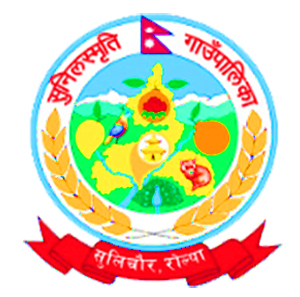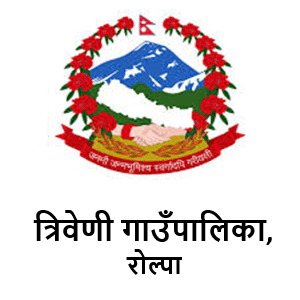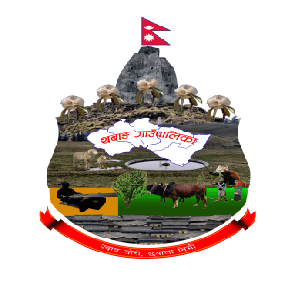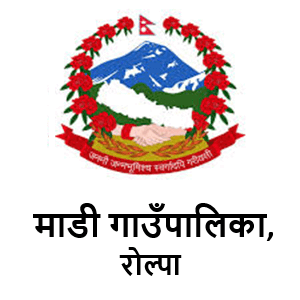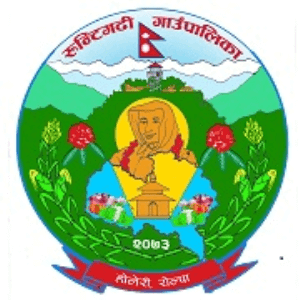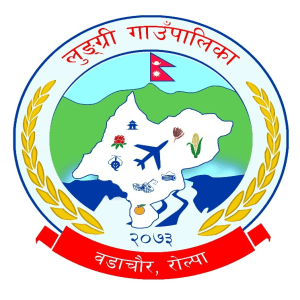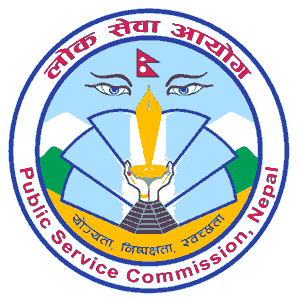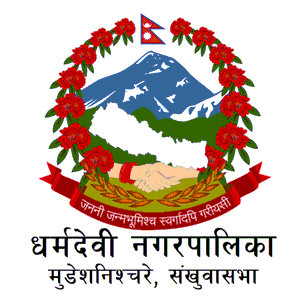Overview
Paribartan Rural Municipality (Gaupalika - परिवर्तन गाउँपालिका, राेल्पा) is located in the western part of Rolpa District, often referred to as Western Rolpa. Despite being geographically remote, it is rich in forests and biodiversity.
The total area of the municipality is 163.01 square kilometers. Among its wards, Ward No. 3 has the smallest area (12.68 sq. km), while Ward No. 1 is the largest, covering 47.76 sq. km.
Former VDCs and Ward Structure
-
Ward No. 1: Kureli – Entire former Kureli VDC – 47.76 sq. km
-
Ward No. 2: Rangkot – Entire former Rangkot VDC – 32.69 sq. km
-
Ward No. 3: Iriwang (Wards 5–9 of former Iriwang VDC) – 12.68 sq. km
-
Ward No. 4: Pachawang – Entire former Pachawang VDC – 31.72 sq. km
-
Ward No. 5: Rangkot – Entire former Rangkot VDC – 24.96 sq. km
-
Ward No. 6: Iriwang (Wards 1–4 of former Iriwang VDC) – 13.2 sq. km
The municipality was formed by merging five former VDCs: Rangkot, Rangsī, Kureli, Iriwang, and Pachawang.
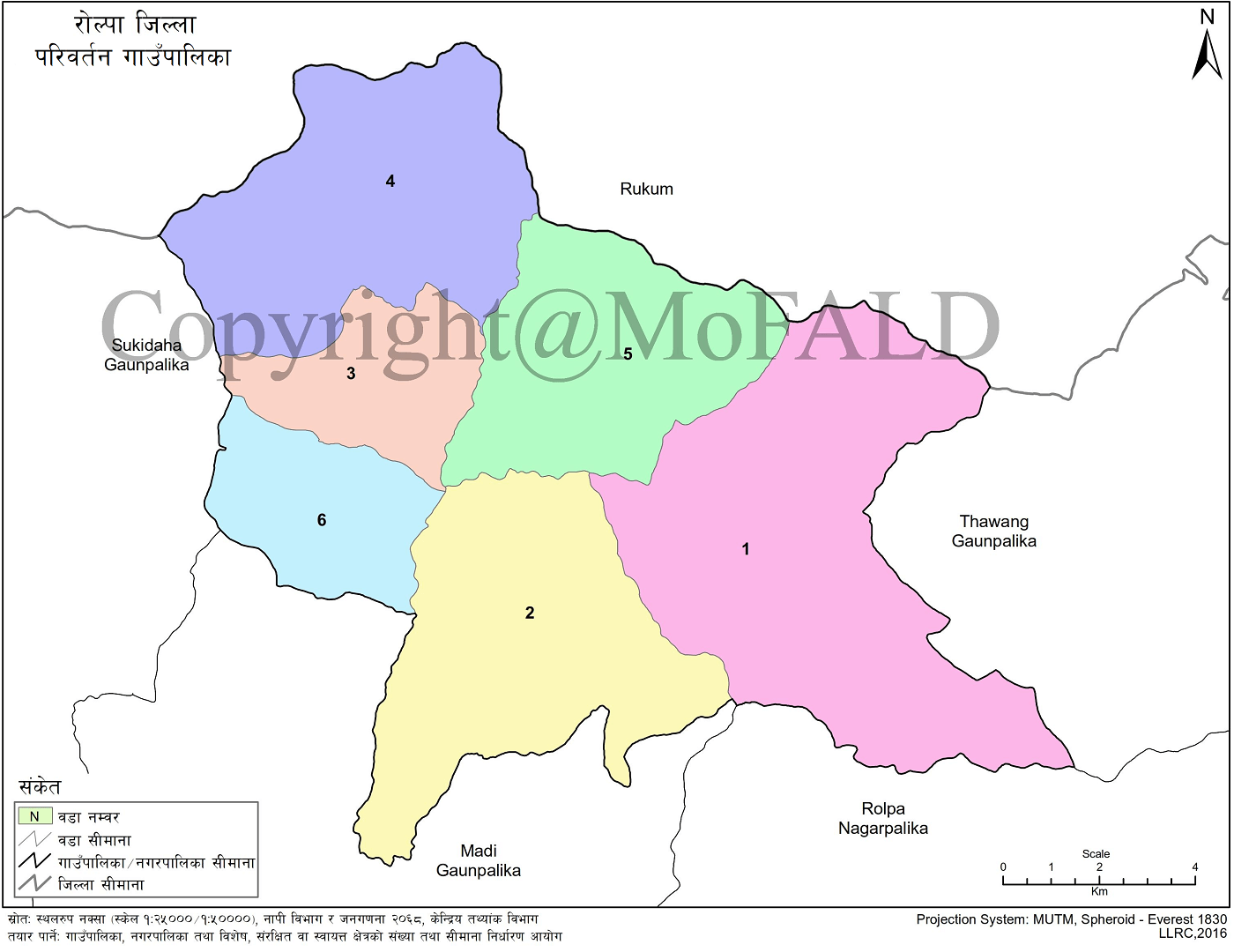
Historical Background and Naming
The area has historical ties with the unification of Nepal. Before unification, this region was ruled by local kings, as in other Baise-Chaubise states. Though not widely known, there is evidence of a royal court in Gajulkot, including a wooden inscription from 1703 BS.
According to local lore, the ministers in Gajul were in search of a suitable king and agreed to crown the man who sat at a specific rest platform after removing his turban. Tuthasen from Jajarkot appeared and unknowingly fulfilled the condition, thus becoming king. He was known for his religious nature and donated the kingdom to Brahmins before departing to Mukti Kshetra. Tuthasen later married Turubawati, daughter of the King of Rukum, and ruled over 18 villages.
His descendant Dhairyapal remained king of Gajul while his brother Karnapal ruled Khungri. The last stipend-receiving king was Fateh Prachand Bahadur Singh, who died in 2049 BS.
Until 2018 BS, the present Rolpa area was part of Pyuthan and Salyan districts. In 2018 BS, Rolpa was formed by merging parts of these districts. Initially, there were 33 village panchayats, later expanded to 51 in 2034 BS. The current Paribartan Rural Municipality was earlier named Duikhola Rural Municipality, which was renamed by the first rural assembly on 27 Bhadra 2074 BS. The administrative center was shifted to Putlachaur in Rangkot for its central location.
This municipality is the home of Vice President Nanda Bahadur Pun and leader Jayapuri Gharti Magar. It was named ‘Paribartan’ in honor of martyr Nep Bahadur KC 'Paribartan' from the Maoist insurgency.
Geographic Coordinates and Climate
-
Latitude: 28°24'N to 28°34'N
-
Longitude: 82°28'E to 82°39'E
-
Area: 163.01 sq. km
-
Climate: Subtropical to temperate
-
Temperature Range: 3.6°C to 31.2°C
-
Average Rainfall: 13.88 mm to 18.36 mm
Water Resources
Though there are no major rivers, the area has abundant springs and small water sources:
-
Springs: Raja Panera, Bahun Panera (Ward 3), Chintepani (Pachawang), Puyebasare (Kewari), Thari (Kalawang)
-
Streams: Ralekhola, Ghangchung, Chunwang, Naphekhola, Putlakhola, Bagaune Khola, Triveni Khola, Rangkholā, Dhagari Khola, Rangsi Khola
Religious and Historical Sites
Important temples and spiritual sites in the area include:
-
Various Math and Temples in Rangsī
-
Iriwang Temple
-
Pachawang Temple
-
Maulakot Temple
-
Timurabot Temple
-
Sukidaha Temple
-
Shiv-Parvati Temple
-
Naulodevi Bhagwati Temple
-
Baraha Temple
-
Wagamara Church
-
Rangsī Church
Forests and Vegetation
Due to the temperate climate, the area has abundant coniferous forests. Major flora includes:
-
Uttis, Paiyu, Walnut, Rhododendron, Pine, Angeru, Baanj, Kharsu, Lahare Peepal
-
Wildlife includes: Red panda, Ghoral, Rabbit, Wild boar, Monkey, Jackal, Porcupine
-
Birds include: Kalij, Dove, Halesa, Parrot, Pigeon, Owl, Cuckoo, Nyauli, Chyakura, Titara, Jureli, Phista
About 40 varieties of medicinal herbs are found here, some of which are already being exported. Key herbs include Tejpat, Timur, Kaulo, Allo, Sugandhawal, Chiraito, Kutki, and others like Sissno, Dhunghephool, Titepati.
Livestock includes goats, cows, buffaloes, pigs, and sheep. Domestic birds include pigeons, chickens, and ducks.
Local Festivals and Fairs
Reflecting Nepal’s cultural diversity, Paribartan hosts a range of ethnic, linguistic, and religious festivals:
-
National festivals: Dashain, Tihar
-
Ethnic festivals: Teej (Brahmin/Chhetri), Maghe Sankranti, Asar Sankranti, Ghiu Sankranti
-
Magar and Dalit communities: Bhume Parva, Bhadau Purnima
Agriculture
According to 2068/69 BS District Forest Office data, 8,000 hectares of forest land exist in the municipality. The remaining land consists of farmland, bushes, slopes, grazing land, and riverside areas.
Despite 28% of land being arable, 79% of it relied on rainwater until 2012. Modern irrigation remains limited. Although Nepal is an agriculture-based country, the increasing need to import agricultural products indicates the need for reforms.
About 81.85% of residents depend on traditional farming and livestock rearing. Others are engaged in trade, jobs, foreign employment, daily wage labor, and small industries.
Key prospects for economic development:
-
Commercial Agriculture: Vegetable farming, fruits (walnuts, apples)
-
Cash Crops: Cardamom, ginger, turmeric, beans
-
Forest-Based Products: Medicinal herbs
-
Animal Husbandry: Buffalo, cow, goat farming
List of Schools in Paribartan Rural Municipality
-
Pre-schools: 41
-
Basic Schools: 43
-
Secondary Schools: 12
-
Plus-2 Level Schools: 2
-
Public Schools: 40
-
Private Schools: 2
-
Model Schools: 1
-
Technical Schools: 2
-
Total Schools: 43
Private Schools
-
Rolpa Rediation English Boarding School – Paribartan – (Nursery–6)
-
Three Modern English Boarding School – Paribartan – (Nursery–4)
Model School
-
Nepal Rastriya Namuna Secondary School – Paribartan – (1–12, CTEVT affiliated)
Technical Schools
-
Janasewa Model Secondary School – Rangsi, Paribartan – (1–12, NEB, CTEVT)
-
Nepal Rastriya Namuna Secondary School – Paribartan – (1–12, CTEVT)
Secondary and Plus-2 Level Public Schools
-
Nepal Rastriya Secondary School – Maulabot, Paribartan – (Nursery–10)
-
Jana Kalyan Secondary School – Kukeli, Ward 1, Paribartan – (Nursery–10)
-
Dibya Jyoti Secondary School – Paribartan – (Nursery–10)
-
Bal Kalyan Secondary School – Paribartan – (Nursery–10)
-
Bal Shiksha Secondary School – Thunikot, Ward 3, Paribartan – (Nursery–10)
-
Nepal Rastriya Secondary School – Iribang, Paribartan – (Nursery–10)
-
Jana Kalyan Secondary School – Rangkot, Ward 5, Paribartan – (Nursery–10)
-
Janata Secondary School – Paribartan – (Nursery–10)
-
Jana Jyoti Secondary School – Ward 4, Paribartan – (Nursery–10)
-
Rastriya Secondary School – Kewari, Ward 3, Paribartan – (Nursery–10)
Basic Schools (Selected Highlights)
-
Saraswati Basic School – Pachhabang, Ward 4, Paribartan – (Nursery–8)
-
Tribeni Basic School – Paribartan – (Nursery–8)
-
Nepal Rastriya Basic School – Rangkot, Ward 5, Paribartan – (Nursery–8)
-
Thakur Khoria Basic School – Bhalukot, Paribartan – (Nursery–5)
-
Bal Kalyan Basic School – Jogidanda, Ward 1, Kureli, Paribartan – (Nursery–8)
-
Ati Gyan Jyoti Basic School – Paribartan – (Nursery–5)
-
Bagesori Basic School – Paribartan – (Nursery–5)
-
Jivan Jyoti Basic School – Gopedhara, Paribartan – (Nursery–5)
-
Bhanu Bhakta Basic School – Paribartan – (Nursery–8)
-
Basic School – Dhoyakhoya, Siruwali, Paribartan – (Nursery–5)
-
Jana Chetana Basic School – Paribartan – (Nursery–5)
-
Bal Bikash Basic School – Putlachaur, Rangsi, Paribartan – (Nursery–5)
-
Baluthan Basic School – Paribartan – (Nursery–5)
-
Janata Basic School – Paribartan – (Nursery–5)
-
Hariyali Basic School – Paribartan – (Nursery–5)
-
Biswamitra Basic School – Sima, Paribartan – (Nursery–5)
-
Divya Jyoti Basic School – Paribartan – (Nursery–5)
-
Bhrikuti Basic School – Paribartan – (Nursery–5)
-
Deepjyoti Basic School – Paribartan – (Nursery–3)
-
Sikshya Jyoti Basic School – Paribartan – (Nursery–5)
-
Bal Jyoti Basic School – Paribartan – (Nursery–3)
-
Phulbari Basic School – Paribartan – (Nursery–3)
-
Jana Sikshya Basic School – Paribartan – (Nursery–4)
-
Bal Sundar Basic School – Sekam, Rangsi, Paribartan – (Nursery–3)
-
Himalaya Kailash Basic School – Paribartan – (Nursery–5)
-
Jana Kalyan Basic School – Paribartan – (Nursery–3)
-
Janapriya Balsikhya Basic School – Paribartan – (Nursery–2)
-
Janasewa Basic School – Paribartan – (Nursery–3)
-
Bal Kalyan Basic School – Paribartan – (Nursery–3)


